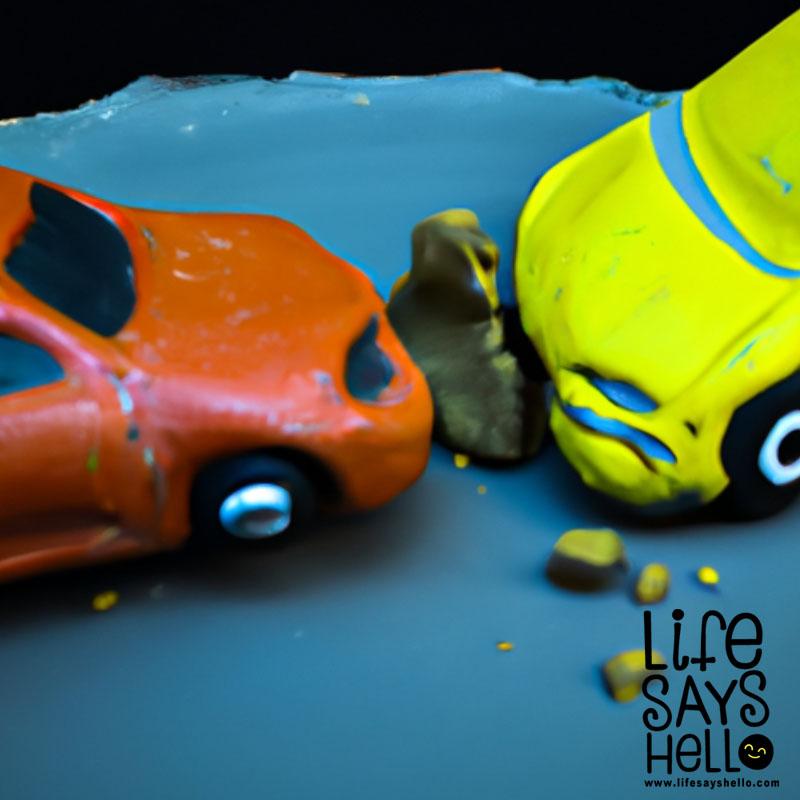Who's at Fault? Unraveling Liability When You Hit an Illegally Parked Car

Accidents happen, but when you find yourself in a collision with an illegally parked car, determining who is responsible can be a complex issue that depends on various factors and state laws.
Driving a car comes with a certain level of responsibility and awareness. We must always be cautious and vigilant, especially when navigating through busy streets and tight parking spots. But what happens when you hit a car that is parked illegally? Is the driver of the moving vehicle always at fault, or can the owner of the parked car share some responsibility?
This article aims to shed light on the general rules of liability in such cases, explore the exceptions where the owner of the illegally parked car may be at fault, and discuss the impact of different state laws on determining responsibility.
General Rule: Driver's Liability
As a general rule, the driver who hits a parked car is considered liable for the damages caused to both vehicles. This is based on the principle that drivers are expected to maintain control of their vehicles and be aware of their surroundings at all times. Even if a car is parked illegally, it is still the responsibility of the moving driver to avoid a collision.
For example, if you are driving down a narrow street and hit a car parked on the side, you may be held responsible for the damages even if the parked car is violating parking regulations. This is because, as a driver, you are expected to adjust your driving to the conditions of the road, including the presence of illegally parked cars.
Exceptions: Owner's Responsibility
While the general rule places liability on the driver of the moving vehicle, there are exceptions where the owner of the illegally parked car may share some responsibility or be entirely at fault. These exceptions typically involve situations where the illegally parked car creates a hazard or obstructs the view of other drivers.
Obstructed View or Hazardous Parking
If the illegally parked car is positioned in such a way that it obstructs the view of drivers or creates a hazard for other vehicles, the owner of the parked car may be partly or wholly to blame for the collision. For instance, if a car is parked around a blind turn or on a dark street without proper lighting, the owner could be considered negligent for creating a dangerous situation.
In these cases, the responsibility for the accident may be shared between the driver of the moving vehicle and the owner of the parked car, depending on the specifics of the situation and the laws of the state where the accident occurred.
Violation of Statutes Intended to Prevent Accidents
Another exception arises when the owner of the illegally parked car violates a statute that is specifically designed to prevent accidents. Examples of such statutes include parking bans near intersections, crosswalks, or fire hydrants. In these situations, the owner of the parked car may be considered negligent per se, meaning their negligence is presumed due to the violation of the statute.
For example, if a car is parked too close to an intersection, making it difficult for other drivers to see oncoming traffic, the owner of the parked car may be held responsible for any collisions that occur as a result. In this case, the owner's negligence is based on the fact that they violated a law intended to prevent accidents.
Comparative Negligence and Contributory Negligence Laws
Determining responsibility in accidents involving illegally parked cars can be further complicated by the fact that different states have different laws regarding negligence and the recovery of damages. These laws can be broadly divided into two categories: comparative negligence and contributory negligence.
Comparative Negligence
In states that follow comparative negligence laws, both parties involved in the accident can recover damages proportionally to their degree of fault. This means that if you are found to be 60% at fault for hitting an illegally parked car, you can still recover 40% of your damages from the owner of the parked car.
There are two types of comparative negligence systems: pure comparative negligence and modified comparative negligence. In a pure comparative negligence state, a party can recover damages even if they are 99% at fault for the accident. In a modified comparative negligence state, a party can only recover damages if they are less than 50% or 51% at fault, depending on the state's specific threshold.
Contributory Negligence
In a few states, contributory negligence laws are still in effect. Under these laws, if a party is found to be even 1% at fault for the accident, they are barred from recovering any damages. This means that if you hit an illegally parked car and are found to be even slightly at fault, you may not be able to recover any damages from the owner of the parked car.
Seeking Legal Advice
Given the complexities of determining responsibility in cases involving illegally parked cars, it is highly recommended that you consult with an experienced car accident lawyer. A lawyer can review the evidence, help you understand the relevant laws in your state, and advise you on the best course of action to take.
In some cases, your lawyer may be able to negotiate a settlement with the other party's insurance company, saving you the time and stress of going to court. In other cases, your lawyer may need to present your case in court to ensure you receive the compensation you deserve.
Conclusion
Determining who is responsible if you hit an illegally parked car can be a complex process, as it depends on the circumstances of the accident, the laws of the state where it occurred, and the degree of fault assigned to each party. While the general rule holds the driver of the moving vehicle liable for damages, there are exceptions where the owner of the parked car may share responsibility or be entirely at fault.
In order to navigate the complexities of these cases and ensure you receive the compensation you are entitled to, it is crucial to seek legal advice from an experienced car accident lawyer. With their help, you can better understand your legal options and work towards a favorable resolution.




Comments